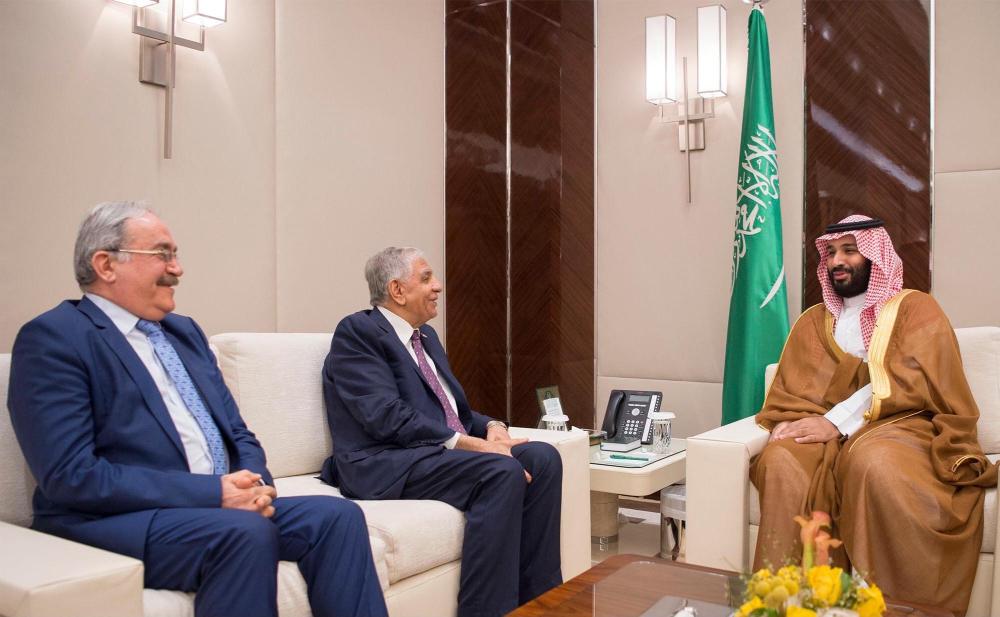Jeddah – Vice Custodian of the Two Holy Mosques Prince Mohammed bin Salman held talks on Wednesday night with visiting Iraqi Minister of Petroleum Jabbar al-Laibi.
The two officials discussed bilateral ties, especially joint economic opportunities, specifically in the oil field.
This included opening land borders, operating direct flights between the two countries and encouraging trade and investment in the Saudi private sector.
Meeting in Jeddah, they also addressed the close cooperation and coordination in petroleum policies. The two officials stressed their complete commitment to the agreement of reducing oil production until the targeted balance is achieved in the market.
On Thursday, the Iraqi official held talks with Foreign Minister Adel al-Jubeir, reported the Saudi Press Agency (SPA).
Laibi then met with Saudi Minister of Energy, Industry and Mineral Resources Khalid bin Abdulaziz al-Falih.
They tackled a number of issues of joint interest, such as cooperation initiatives between Saudi Arabia and Iraq in the energy, industry, mineral wealth, trade and investment fields.
Falih said that Laibi’s visit came at an invitation of Custodian of the Two Holy Mosques King Salman bin Abdulaziz and Prince Mohammed. The invitation stems from the Saudi leadership’s keenness to bolster fraternal and economic ties between Riyadh and Baghdad.
“Cooperation between the two sides will help revitalize the promising economic potential in the region,” explained the Saudi minister.
He revealed that based on talks he had with the Iraqi minister, the upcoming phase of economic and development Saudi-Iraqi ties will witness greater activity and cooperation in trade exchange. He highlighted the human competencies, raw minerals and sources of energy that will help bolster the chances of successful cooperation between the two countries.
